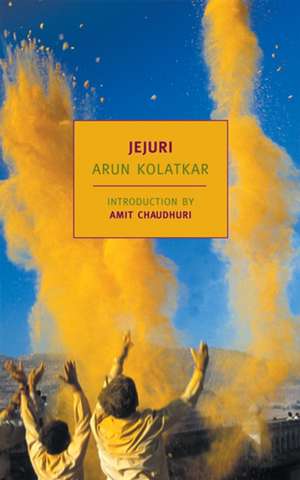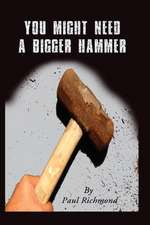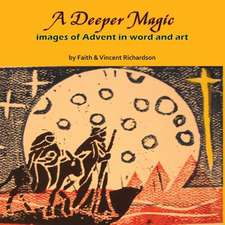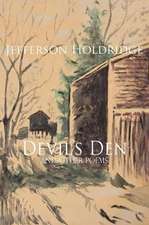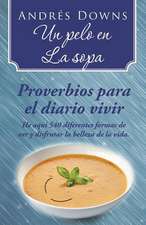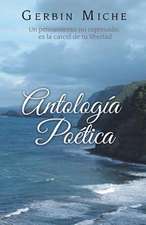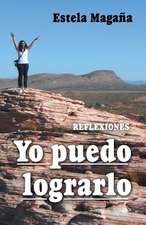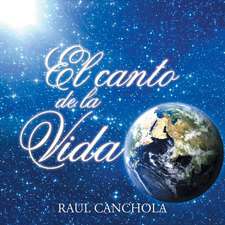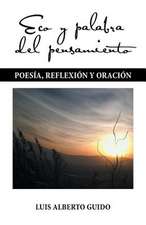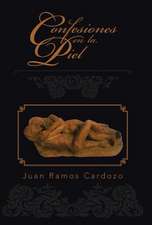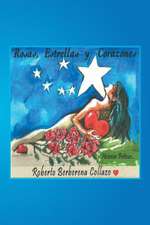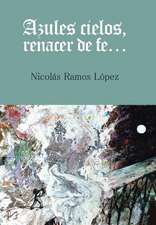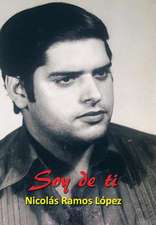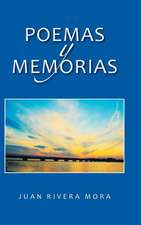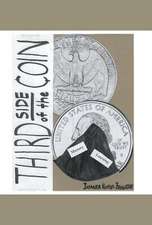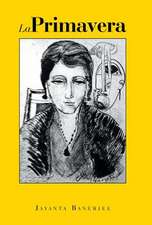Jejuri: New York Review Books Classics
Autor Arun Kolatkaren Limba Engleză Paperback – 14 oct 2006
Din seria New York Review Books Classics
-
 Preț: 88.86 lei
Preț: 88.86 lei -
 Preț: 99.24 lei
Preț: 99.24 lei - 16%
 Preț: 79.25 lei
Preț: 79.25 lei -
 Preț: 77.73 lei
Preț: 77.73 lei -
 Preț: 124.55 lei
Preț: 124.55 lei -
 Preț: 98.73 lei
Preț: 98.73 lei -
 Preț: 83.30 lei
Preț: 83.30 lei -
 Preț: 113.45 lei
Preț: 113.45 lei -
 Preț: 102.47 lei
Preț: 102.47 lei -
 Preț: 81.20 lei
Preț: 81.20 lei -
 Preț: 174.64 lei
Preț: 174.64 lei -
 Preț: 110.73 lei
Preț: 110.73 lei -
 Preț: 119.57 lei
Preț: 119.57 lei -
 Preț: 94.01 lei
Preț: 94.01 lei -
 Preț: 85.29 lei
Preț: 85.29 lei -
 Preț: 101.24 lei
Preț: 101.24 lei -
 Preț: 182.08 lei
Preț: 182.08 lei -
 Preț: 142.67 lei
Preț: 142.67 lei -
 Preț: 90.72 lei
Preț: 90.72 lei -
 Preț: 103.29 lei
Preț: 103.29 lei -
 Preț: 113.30 lei
Preț: 113.30 lei -
 Preț: 100.59 lei
Preț: 100.59 lei -
 Preț: 126.41 lei
Preț: 126.41 lei -
 Preț: 107.40 lei
Preț: 107.40 lei -
 Preț: 174.03 lei
Preț: 174.03 lei -
 Preț: 107.44 lei
Preț: 107.44 lei -
 Preț: 89.27 lei
Preț: 89.27 lei -
 Preț: 85.34 lei
Preț: 85.34 lei -
 Preț: 90.09 lei
Preț: 90.09 lei -
 Preț: 119.36 lei
Preț: 119.36 lei -
 Preț: 99.60 lei
Preț: 99.60 lei -
 Preț: 102.25 lei
Preț: 102.25 lei -
 Preț: 127.42 lei
Preț: 127.42 lei -
 Preț: 96.27 lei
Preț: 96.27 lei -
 Preț: 85.97 lei
Preț: 85.97 lei -
 Preț: 136.91 lei
Preț: 136.91 lei -
 Preț: 161.86 lei
Preț: 161.86 lei -
 Preț: 105.17 lei
Preț: 105.17 lei -
 Preț: 88.86 lei
Preț: 88.86 lei -
 Preț: 94.83 lei
Preț: 94.83 lei -
 Preț: 118.21 lei
Preț: 118.21 lei -
 Preț: 87.20 lei
Preț: 87.20 lei -
 Preț: 95.45 lei
Preț: 95.45 lei -
 Preț: 97.50 lei
Preț: 97.50 lei -
 Preț: 111.96 lei
Preț: 111.96 lei -
 Preț: 133.18 lei
Preț: 133.18 lei -
 Preț: 100.18 lei
Preț: 100.18 lei -
 Preț: 75.23 lei
Preț: 75.23 lei -
 Preț: 91.13 lei
Preț: 91.13 lei -
 Preț: 94.86 lei
Preț: 94.86 lei
Preț: 92.77 lei
Nou
Puncte Express: 139
Preț estimativ în valută:
17.76€ • 19.29$ • 14.93£
17.76€ • 19.29$ • 14.93£
Carte disponibilă
Livrare economică 31 martie-14 aprilie
Livrare express 14-20 martie pentru 14.48 lei
Preluare comenzi: 021 569.72.76
Specificații
ISBN-13: 9781590171639
ISBN-10: 1590171632
Pagini: 57
Dimensiuni: 129 x 204 x 7 mm
Greutate: 0.11 kg
Ediția:Main.
Editura: NEW YORK REVIEW OF BOOKS
Seria New York Review Books Classics
Locul publicării:United States
ISBN-10: 1590171632
Pagini: 57
Dimensiuni: 129 x 204 x 7 mm
Greutate: 0.11 kg
Ediția:Main.
Editura: NEW YORK REVIEW OF BOOKS
Seria New York Review Books Classics
Locul publicării:United States
Recenzii
"Available for the first time outside Kolatkar’s native India, this sequence of poems (written in English, and first published in 1976) describes a trip to a Hindu pilgrimage site in the state of Maharashtra. Amit Chaudhuri’s excellent introduction tells us that Kolatkar was both an amateur musician and a successful art director in the Bombay advertising world, which perhaps explains the acuteness of his ear and eye. Veering between the epigrammatic and the incantatory, these poems capture a place that is both ancient and modern, with crumbling temples and “stock exchange quotations.” Kolatkar’s pages are populated by saints, beggars, prostitutes, and priests, by rats, stray dogs, and the occasional butterfly, a creature whose transitory beauty is meticulously described: “There is no story behind it. / It is split like a second. / It hinges around itself.” -- The New Yorker
"Kolatkar (1932–2004) became a leading literary light in India, writing in Marathi and in English about the contradictions of the developing subcontinent. Composed in English, this fastidious, ironic lyric cycle helped make Kolatkar a national, if not international, star when published in India in 1974. Its impressionistic and anecdotal poems describe a visit to the town of the book's title, a Hindu pilgrimage site in Maharashtra state where ancient stones and holy men coexist with modern consumer culture and media, with their "slashed editorials/ and promises of eternal youth." Some poems retell (or undermine) local legends; others simply describe, using everything from jumbled typography to songlike stanzas to depict the site's disjunctions. There are no notes to explain place-specific references. And Kolatkar's techniques, like those of many British poets, may strike American readers as understated—simultaneously casual and terse: "I killed my mother/ for her skin./ I must say/ it didn't take much/ to make this pouch/ I keep turmeric in." Kolatkar's technical assurance and variety, and his decidedly vivid townscapes, however, ought to compel new readers on their own." --Publishers Weekly
“Jejuri, Arun Kolatkar’s sprightly, clear-sighted, deeply felt poem cycle, is widely recognized in India as a modern classic. I am delighted that this invaluable new edition makes Kolatkar’s work available to an international readership. It is one of the great treasures of mosern Indian literature.” --Salman Rushdie
“Arun Kolatkar was the greatest Indian poet of his generation, and Jejuri, with its linguistic inventiveness and intellctual daring, was his masterwork.” -- Pankaj Mishra
“A personal epic like William Carlos William’s Paterson. It dramatizes a Jungian passage to contemporary Hinduism, symbolized by the shrine at Jejuri...Jejuri -- a virtuoso performance -- exemplifies a movement towards a freer form of verse, which is what is most promising in Kolatkar’s poetry.” -- K. Venkatachari
"Kolatkar (1932–2004) became a leading literary light in India, writing in Marathi and in English about the contradictions of the developing subcontinent. Composed in English, this fastidious, ironic lyric cycle helped make Kolatkar a national, if not international, star when published in India in 1974. Its impressionistic and anecdotal poems describe a visit to the town of the book's title, a Hindu pilgrimage site in Maharashtra state where ancient stones and holy men coexist with modern consumer culture and media, with their "slashed editorials/ and promises of eternal youth." Some poems retell (or undermine) local legends; others simply describe, using everything from jumbled typography to songlike stanzas to depict the site's disjunctions. There are no notes to explain place-specific references. And Kolatkar's techniques, like those of many British poets, may strike American readers as understated—simultaneously casual and terse: "I killed my mother/ for her skin./ I must say/ it didn't take much/ to make this pouch/ I keep turmeric in." Kolatkar's technical assurance and variety, and his decidedly vivid townscapes, however, ought to compel new readers on their own." --Publishers Weekly
“Jejuri, Arun Kolatkar’s sprightly, clear-sighted, deeply felt poem cycle, is widely recognized in India as a modern classic. I am delighted that this invaluable new edition makes Kolatkar’s work available to an international readership. It is one of the great treasures of mosern Indian literature.” --Salman Rushdie
“Arun Kolatkar was the greatest Indian poet of his generation, and Jejuri, with its linguistic inventiveness and intellctual daring, was his masterwork.” -- Pankaj Mishra
“A personal epic like William Carlos William’s Paterson. It dramatizes a Jungian passage to contemporary Hinduism, symbolized by the shrine at Jejuri...Jejuri -- a virtuoso performance -- exemplifies a movement towards a freer form of verse, which is what is most promising in Kolatkar’s poetry.” -- K. Venkatachari
Notă biografică
Arun Kolatkar (1932-2004) was born in the town of Kolhapur in the western Indian state of Maharashtra and attended the JJ School of Art in Bombay, the city in which he was to pursue a long and successful career as an art director in advertising.Jejuri, published by a small press in 1976, received the Commonwealth Poetry Prize. Kolatkar was also the author of four volumes of poetry in Marathi. Two long-awaited further collections in English,Kala Ghoda PoemsandSarpa Satra, appeared shortly before his death.
Amit Chaudhuriis Professor of Contemporary Literature at the University of East Anglia. He has written several works of fiction, a critical study of the poetry of D.H. Lawrence, and editedThe Vintage Book of Modern Indian Literature. Among the many awards he has received are the Commonwealth Writers’ Prize, the Los Angeles Times Book Prize for Fiction, and the Government of India’s Sahitya Akademi Award. He is a Fellow of the Royal Society of Literature, and is also a musician.
Amit Chaudhuriis Professor of Contemporary Literature at the University of East Anglia. He has written several works of fiction, a critical study of the poetry of D.H. Lawrence, and editedThe Vintage Book of Modern Indian Literature. Among the many awards he has received are the Commonwealth Writers’ Prize, the Los Angeles Times Book Prize for Fiction, and the Government of India’s Sahitya Akademi Award. He is a Fellow of the Royal Society of Literature, and is also a musician.
